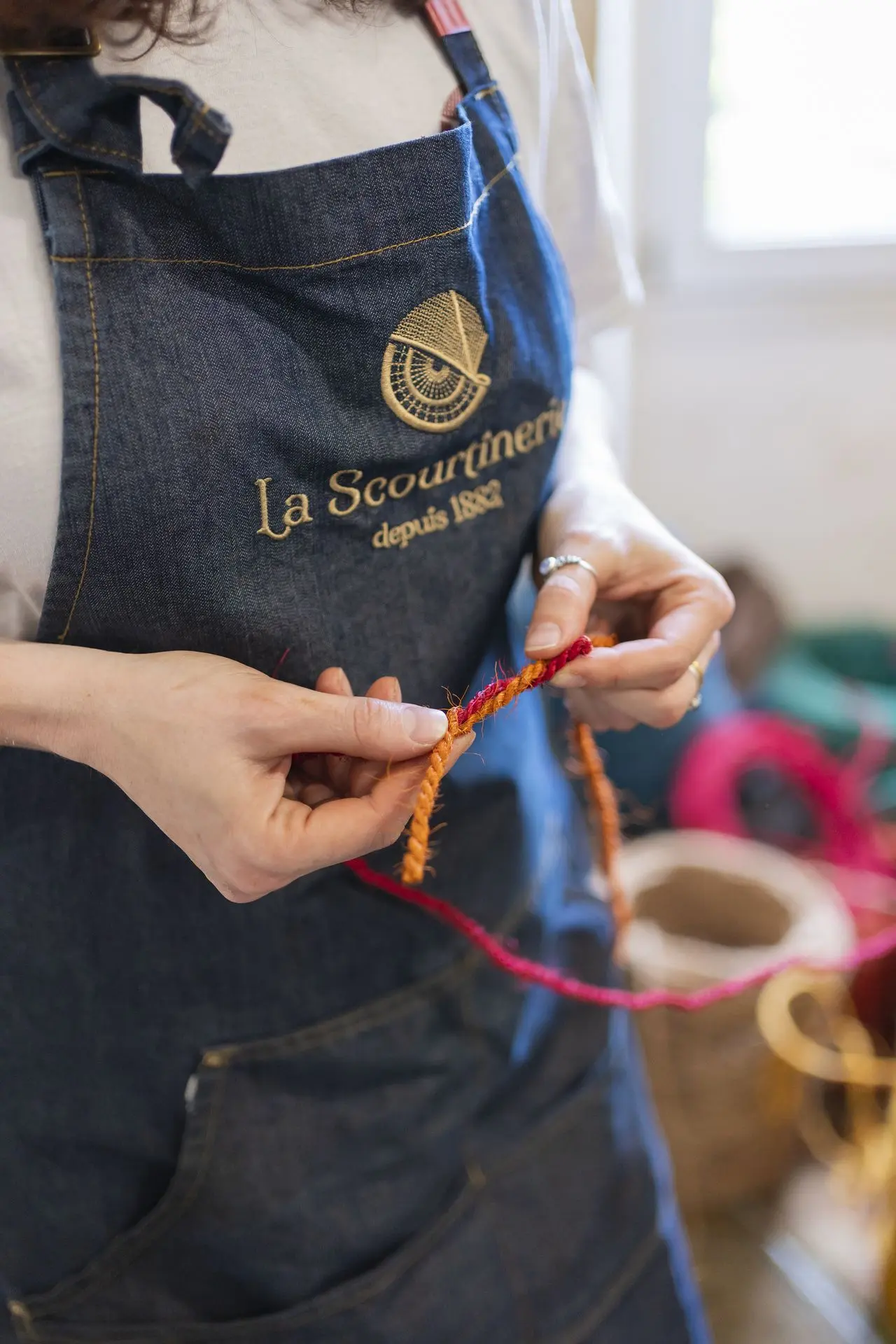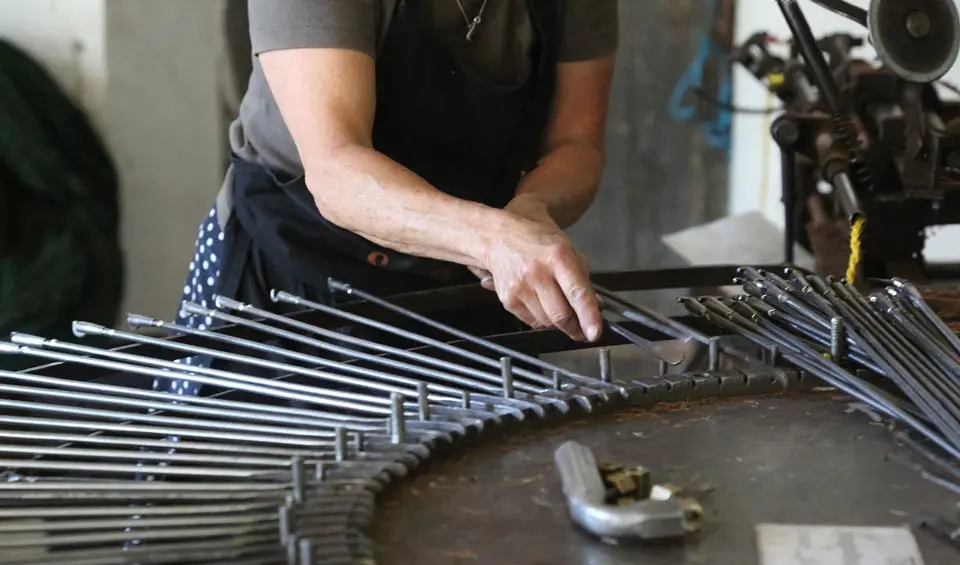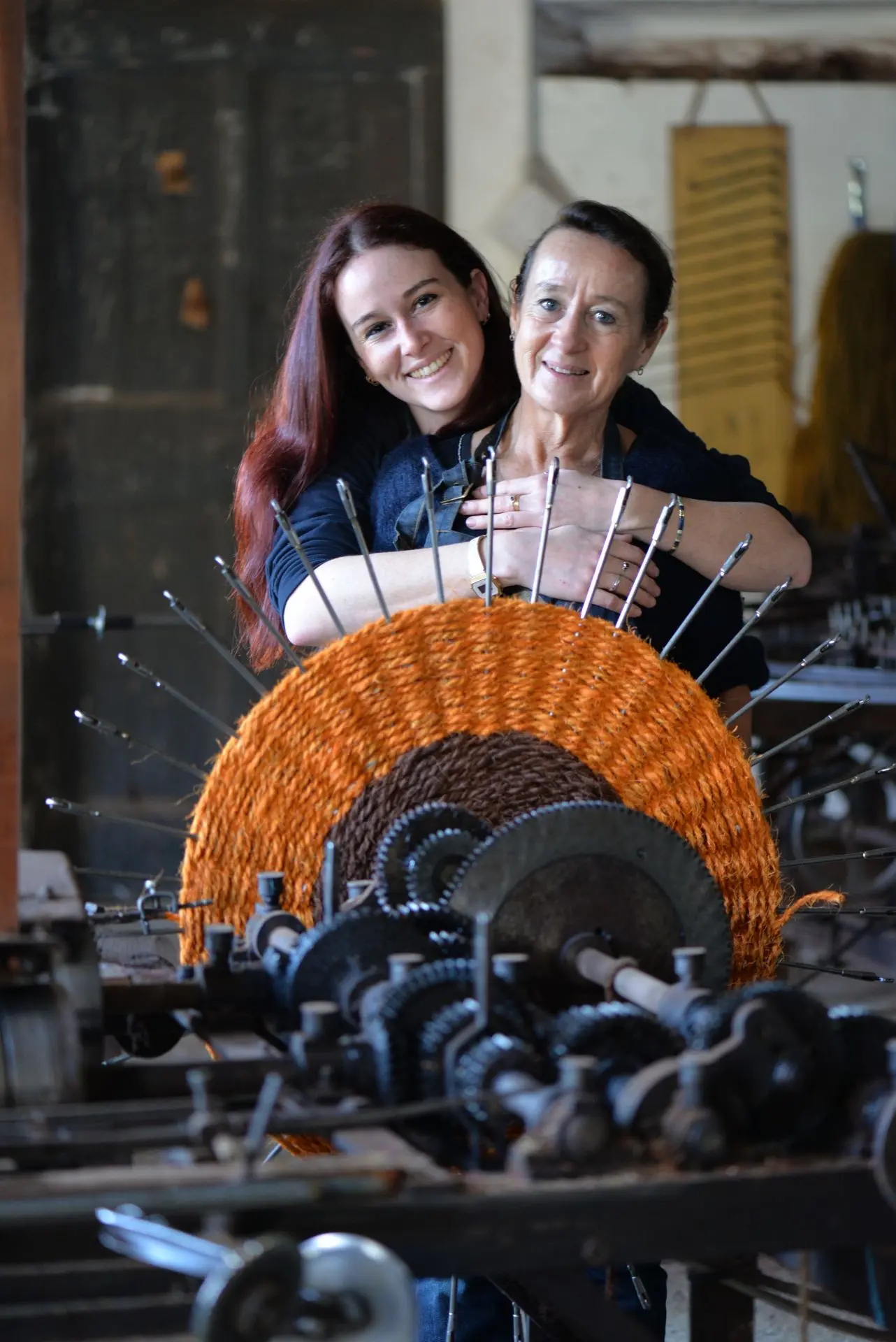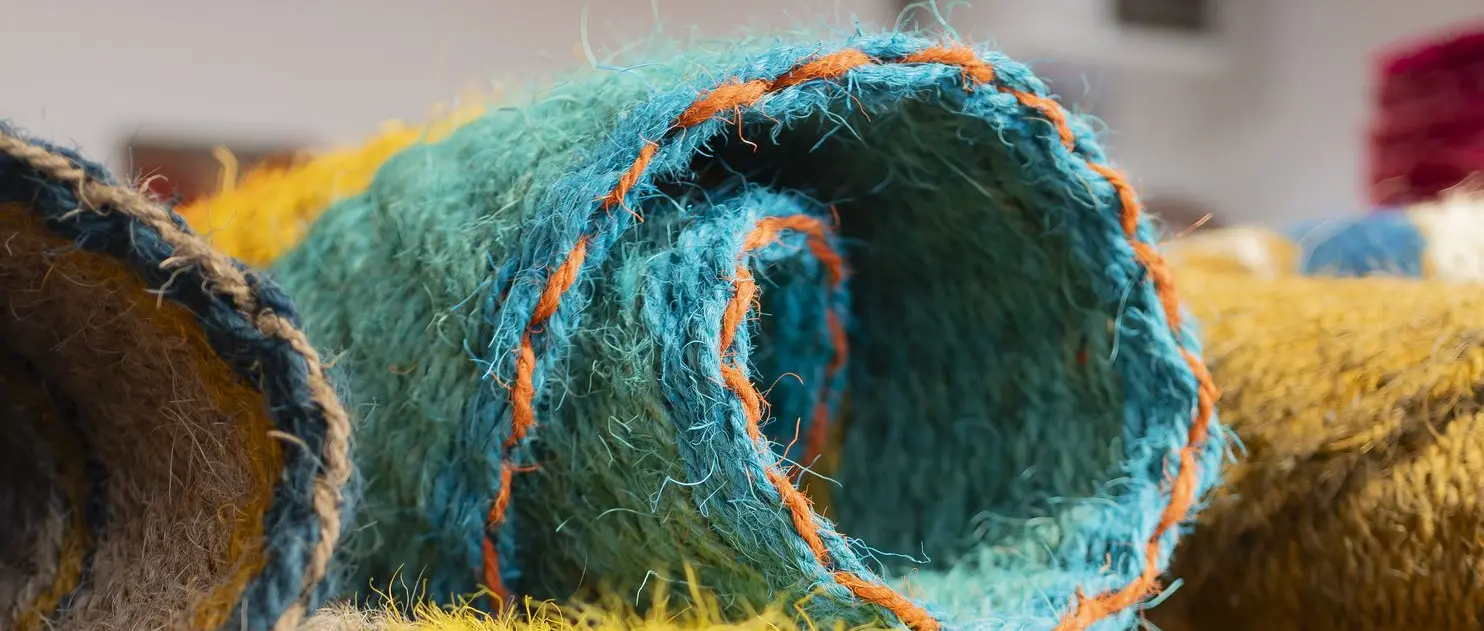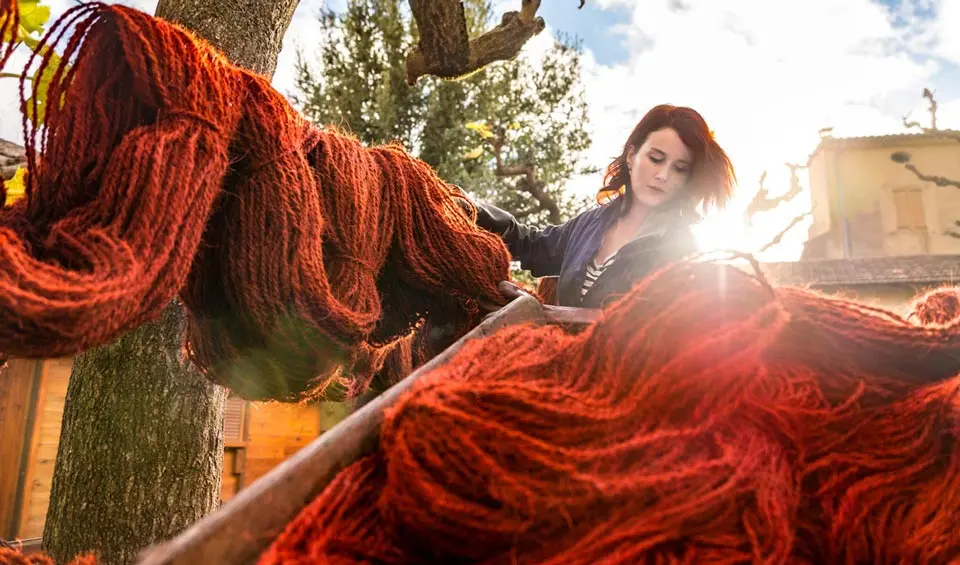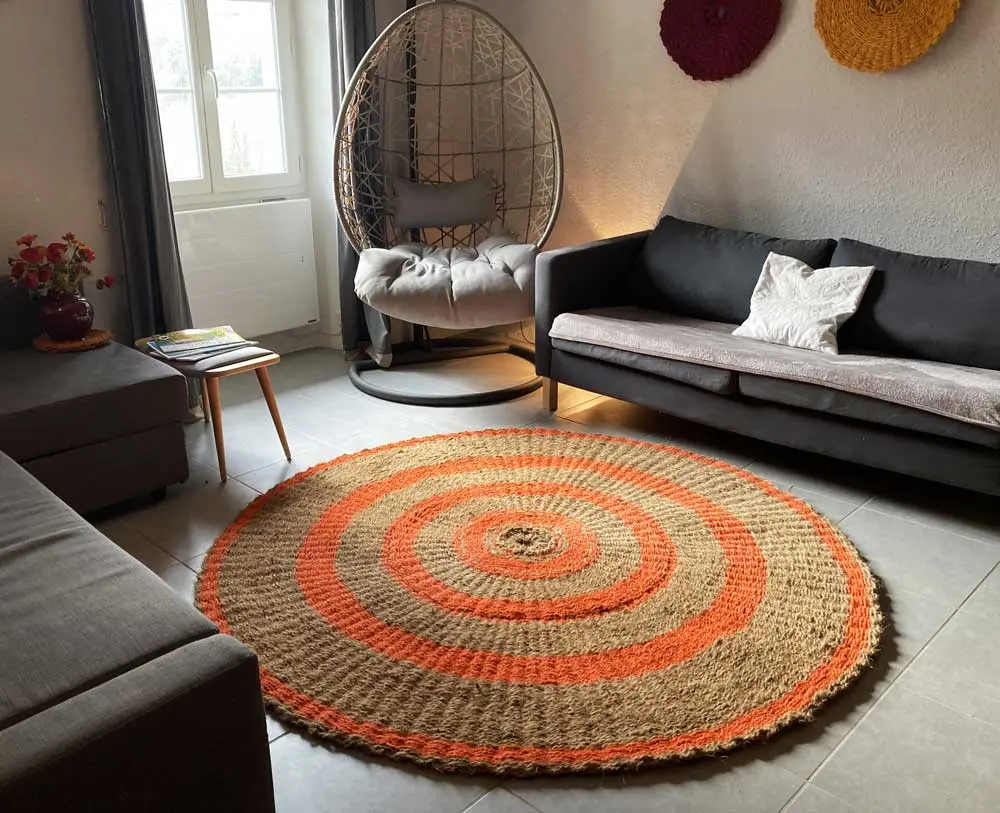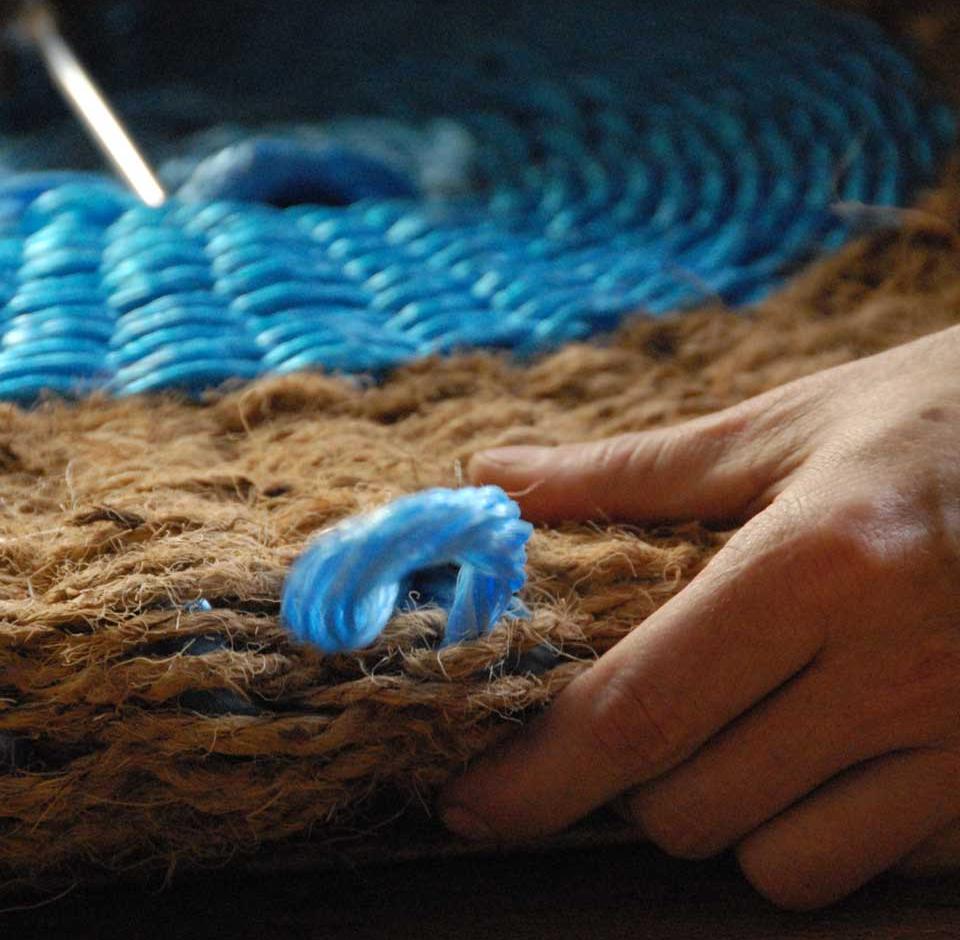Our Know-How
Ferdinand and Marie Fert, owners of a weaving establishment specializing in twill, fabric, and wool trading, came up with the idea of making scourtins.
Founded in 1882 in Nyons, in the Drôme Provençale region, this family business successfully endured through the 20th century.
Ferdinand invented the first circular weaving machine and introduced coconut fiber into French weaving.
La Scourtinerie is now run by Frédérique Fert and Sophie Villeneuve Fert, the great-granddaughter and great-great-granddaughter of the founders. They represent the 4th and 5th generations of the Fert family.
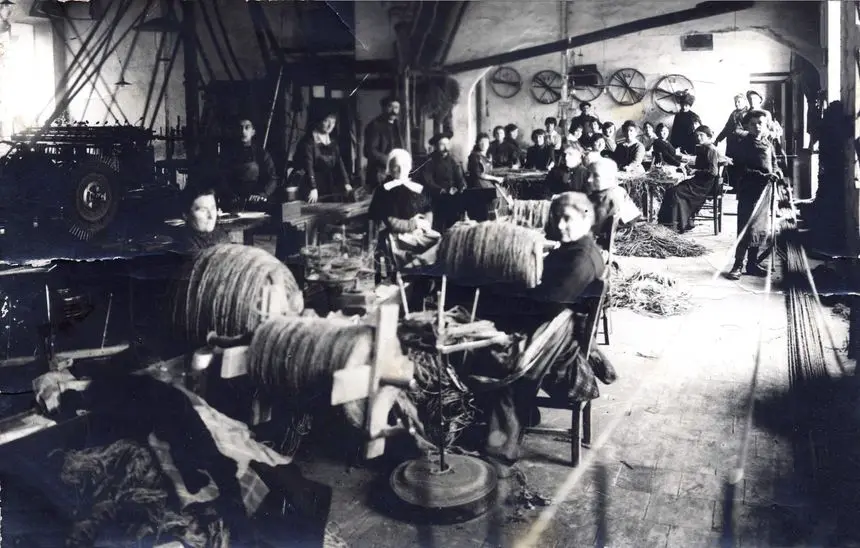
From Silk to Scourtins
As soon as you enter, the old stones of the silk mill captivate visitors, as this was once a place where silk threads were spun and wound before scourtins were made.
The beautiful architecture of the buildings includes the forge used for maintaining tools and looms, as well as the former silk cocoon steamer, now repurposed for dyeing scourtins.
On the square, a magnificent Judas tree, century-old plane trees, and trellises where colorful coconut rope skeins are drying create a warm and inviting atmosphere.
In the workshop, where cast iron columns support the ceiling, the wheel of an 1892 loom stands proudly amidst tools, models crafted by the grandfather, and the current designs.
Scourtins Move Beyond Olive Oil Mills
The traditional method of extraction by pressing involved separating the oil must from the olive pomace through filtration in a stack of scourtins, alternating layers of paste and scourtins under a press.
In 1956, a devastating year, frost shattered the trunks of olive trees, ravaged the Provençal olive groves, and brought the scourtinerie to the brink of bankruptcy.
Georges Fert noticed that many people used worn-out scourtins as doormats, and he came up with the idea of dyeing coconut fibers and transforming scourtins originally made for oil mills into decorative and furnishing items.
The Tradition Lives On: The Last Scourtin Workshop in France
At the Scourtinerie in Nyons, we are dedicated to preserving a unique ancestral craft. Founded in 1882, our workshop is now the last in France producing scourtins, traditional filters used for various food and artisanal applications.
Beyond olive oil mills, our scourtins are also used in the production of wine, cider, walnut oil, honey, and other filtration processes. Whether for individuals or professionals, each piece is carefully crafted using artisanal methods passed down through generations, reflecting our commitment to quality and authenticity.
By staying true to our heritage while embracing innovation, we carry forward a tradition that embodies the rich cultural and gastronomic heritage of our region.
Discover our story and products—true ambassadors of a rare and precious French craftsmanship.

FRENCH COMPANY

LIVING HERITAGE COMPANY

ANCESTRAL KNOW-HOW

NATURAL AND SUSTAINABLE RESOURCE

FRENCH COMPANY

LIVING HERITAGE COMPANY

ANCESTRAL KNOW-HOW

NATURAL AND SUSTAINABLE RESOURCE
